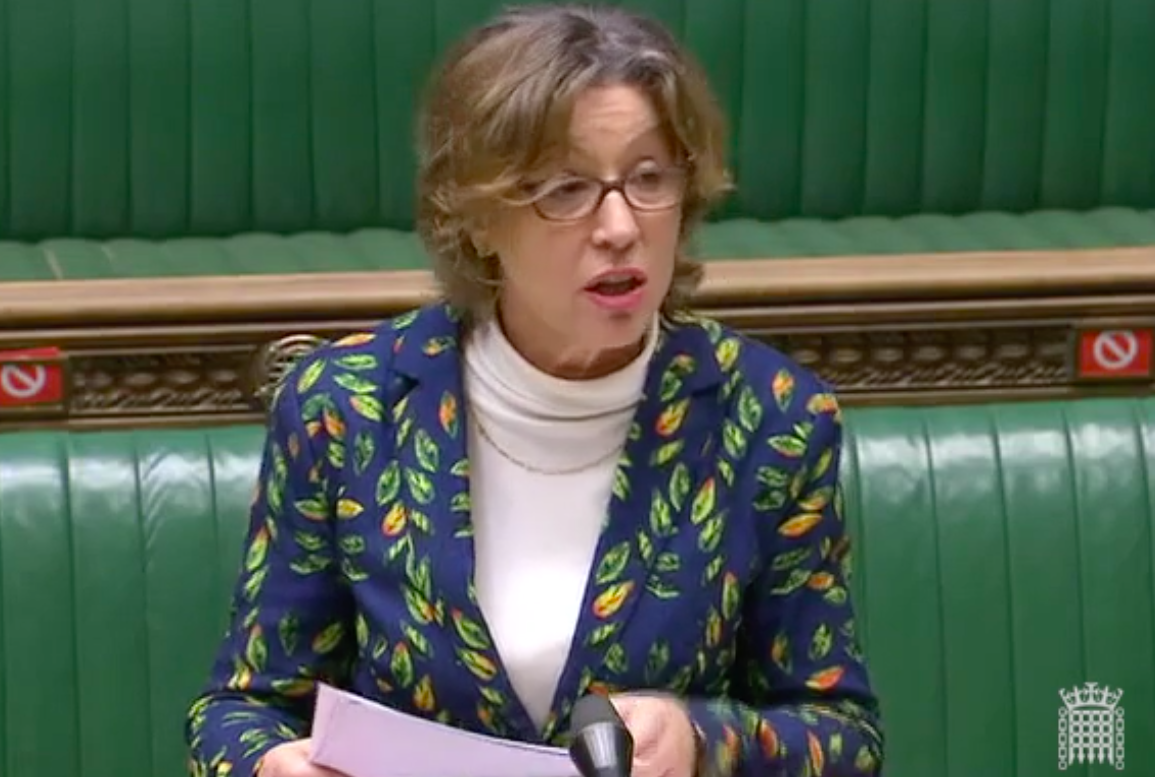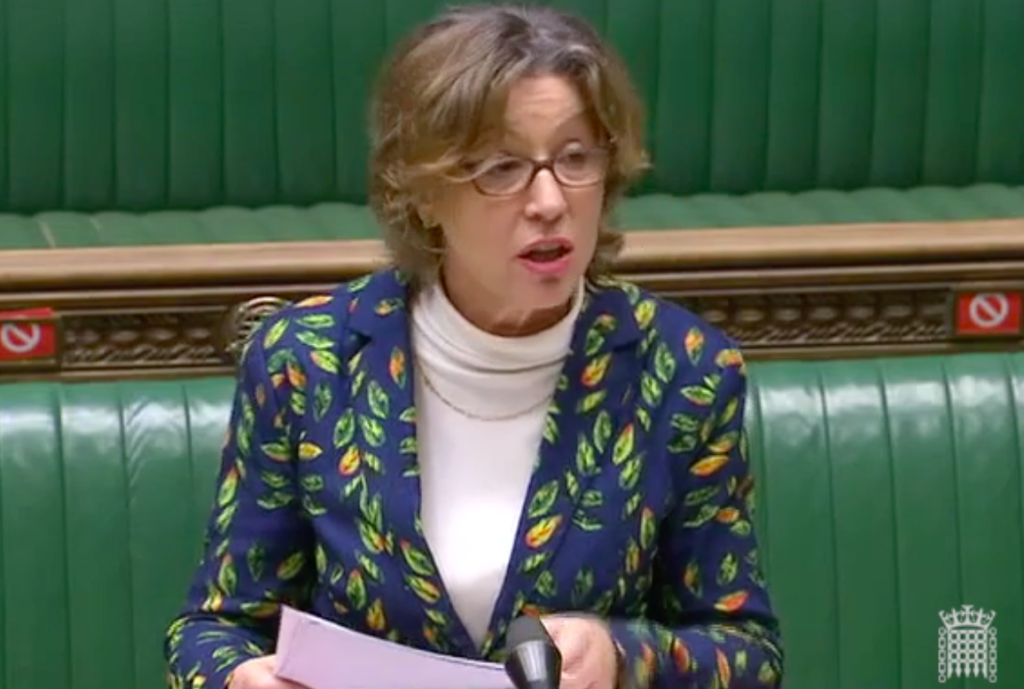
The bill, which is now at report stage, was delayed the “next parliamentary session”, with Environment Minister Rebecca Pow saying that Royal Assent can now be expected in the autumn.
However, the report stage continued as planned on Tuesday, giving MPs an opportunity to table amendments.
A total of 5 amendments were voted on at the debate yesterday, all of which were rejected.
‘Dumping ground’
Labour MP Ruth Jones, put forward an amendment which looked to “ensure that Britain does not become a dumping ground of hazardous waste”.
Ms Jones said the amendment would ensure this by putting a “minimum level of protections under the Registration, Evaluation, Authorisation and Restriction of Chemicals (REACH),”
and remove the possibility that a Secretary of State might lower standards that are in place currently.
Ms Jones said: “This amendment is very simple. It means that there is a risk that the UK could become a dumping ground for hazardous chemicals unless we maintain the same standards that we had previously.”
The amendment was however rejected with 227 ayes and 357 noes.
The four other rejected amendments included proposals to set a “nature target” for 2030, setting “parameters” in the bill to ensure the PM2.3 air quality targets for 2030, reviews on banning plant protection products likely to impact bees, and a review on how the OEP reviews public authorities.
Waste hierarchy
Other amendments were put forward and not voted on after the Ms Pow gave assurances they would be met in other ways.
Ms Jones put forward another amendment that would require Sectary of State to “take account of the waste hierarchy, starting with the priority action of prevention”.
“This bill does not go far enough, and it did not have to be this way.” – Ruth Jones, Labour
The Labour MP said that the amount of “avoidable” residual waste coming from UK households, suggests that there remains a “substantial opportunity” for increased recycling.
Ms Jones argued: “This bill does not go far enough, and it did not have to be this way. Over the past two decades, the household waste recycling rate in England has increased significantly from just 11.2% to almost 50%. I am pleased that for half of that time a Labour Government ambitiously pushed for a change of behaviour and real action on the green agenda. However, England still falls far short of the EU target of recycling a minimum of 50% of household waste by 2020.”
The amendment was not put forward as Ms Pow “assured” Ms Jones that consultations will “shortly be launched” on issues around waste reforms, including deposit return schemes, recycling collections and environmental permitting regulations.
Nappy Waste
The SNP’s David Liden tabled an amendment, calling for the bill to make regulations about environmental standards for nappies.
Mr Liden, who has campaigned for nappy waste reduction for some time, explained that standards needed to be put in place for nappies, such as encouraging local authorities to promote reusable nappies and reduce nappy waste.
It was not put to a vote as Ms Pow responded saying that “primary powers on resource efficiency” in the bill will give the government “legislative means” to act on nappies.
🧷 Good result tonight on #EnvironmentBill. Minister has just announced at despatch box that, as a result of my New Clause 10 and New Schedule 1, the Government is amending explanatory notes of the Bill. @NappyAlliance
— David Linden MP (@DavidLinden) January 26, 2021
This was also welcomed by the Nappy Alliance as a “significant move to finally address the devastating environmental effects of single-use nappies”.
Plastic pollution
Conservative MP Chris Loder also tabled an amendment which would require the government to set “specific targets” to reduce the volume of non essential single-use plastic products sold by a designated date.
Mr Loder argued: “This amendment is intended to work alongside the measures already set out in this bill, to complement the Government’s ambitions to end this systemic over-production and over-consumption of polluting plastics.”
Mr Loder also set out statistics from environment campaign group Greenpeace, that showed Tesco’s total plastic use has increased by 2.2% between 2017/19.
Ms Pow, however rejected the proposal, and said: “We cannot accept the amendment proposed, as we actually want to see a more ambitious resource and waste target under the bill, which applies holistically to all materials, not just plastic.”












Subscribe for free